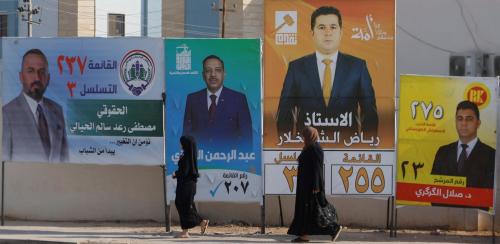This week marks the fifth anniversary of the start of the Iraq war. The early months of 2008 also are the fortieth anniversary of the My Lai massacre and the Tet offensive during the Vietnam War—events which eventually forced the United States to end its involvement in that conflict.
The juxtaposition of these two anniversaries provides a reminder that it is not always possible to understand the true meaning and effect of events except from the perspective of several decades of subsequent history.
For example, when the last helicopter evacuated the last Americans from the roof of the U.S. embassy in Saigon in 1975, the prospects for Vietnam looked a lot more ominous than they do now. On that April day, the assumption was that the people of Vietnam were doomed to a harsh existence under a stifling authoritarian Communist political and economic system.
In fact, Vietnam has turned out much differently. Who would have imagined that 33 years after the humiliating evacuation, Vietnam would have a booming capitalist economy with five-star luxury hotels, million-dollar condos on China Beach, gourmet restaurants and championship golf courses attracting hordes of vacationers and honeymooners.
This is not to suggest that the Communist party doesn’t still tightly control the political system in Vietnam. But even that is loosening somewhat. Political liberalization often follows economic liberalization.
The ultimate outcome in Iraq is unknowable now.
In the short run, if the United States withdraws substantial numbers of its troops before Iraqi politicians and military leaders are willing or able to assume full responsibility for security, political reform and institution-building, the country may descend into chaos, sectarian violence and domination by militant Islamic forces hostile to America.
That would be similar to what happened in Vietnam after the American withdrawal, when hundreds of thousands of Vietnamese considered to be enemies of the new Communist government were imprisoned or executed.
There are other similarities between Vietnam and Iraq: In both conflicts, pressure on the U.S. government to withdraw its troops increased greatly when public opinion and collective media judgments in America turned against the war
Also, the United States knew very little about either Vietnam or Iraq before it became
mired in conflict.
America got involved in Vietnam without a thorough understanding of its history, particularly the centuries of Chinese domination, the lingering effects of the Japanese occupation during World War II and the aftermath of French colonial rule. America viewed Ho Chi Minh primarily as a communist threat rather than a nationalist unifier.
Likewise, American officials seem to have little understanding of Iraqi history, from its Biblical days as Mesopotamia, through the Ottoman Empire, the British colonizers, the Hashemite monarchy, the republic and the Saddam Hussein dictatorship.
As in Vietnam, U.S. officials also have little knowledge of regional and religious conflicts within Iraq.
And, if Vietnam is an example, it’s not likely that we will know for several decades whether the current U.S. effort in Iraq has succeeded in its goals of promoting democracy in the Middle East and denying Islamic terrorists a base.
The Brookings Institution is committed to quality, independence, and impact.
We are supported by a diverse array of funders. In line with our values and policies, each Brookings publication represents the sole views of its author(s).



Commentary
Op-edIraq and Vietnam—Differences and Similarities
March 21, 2008